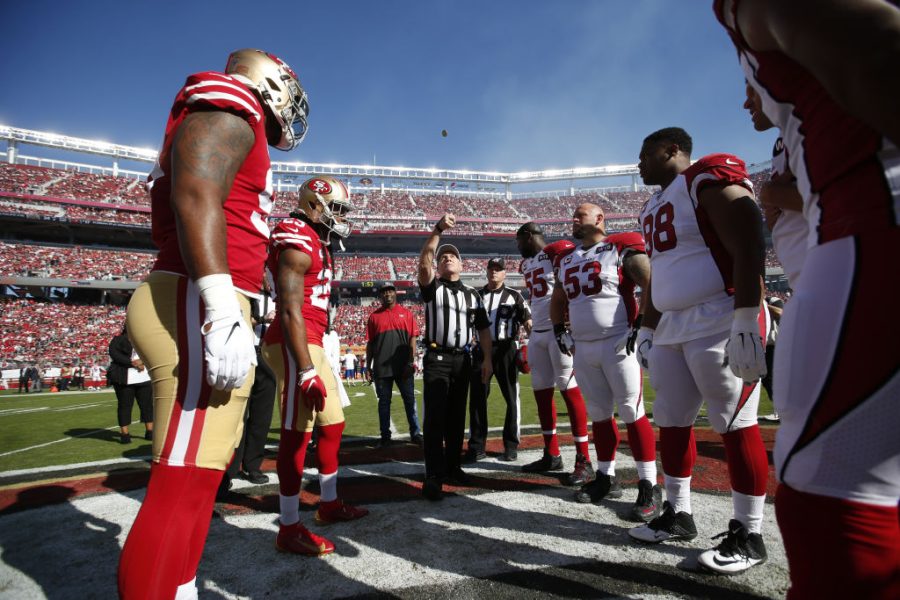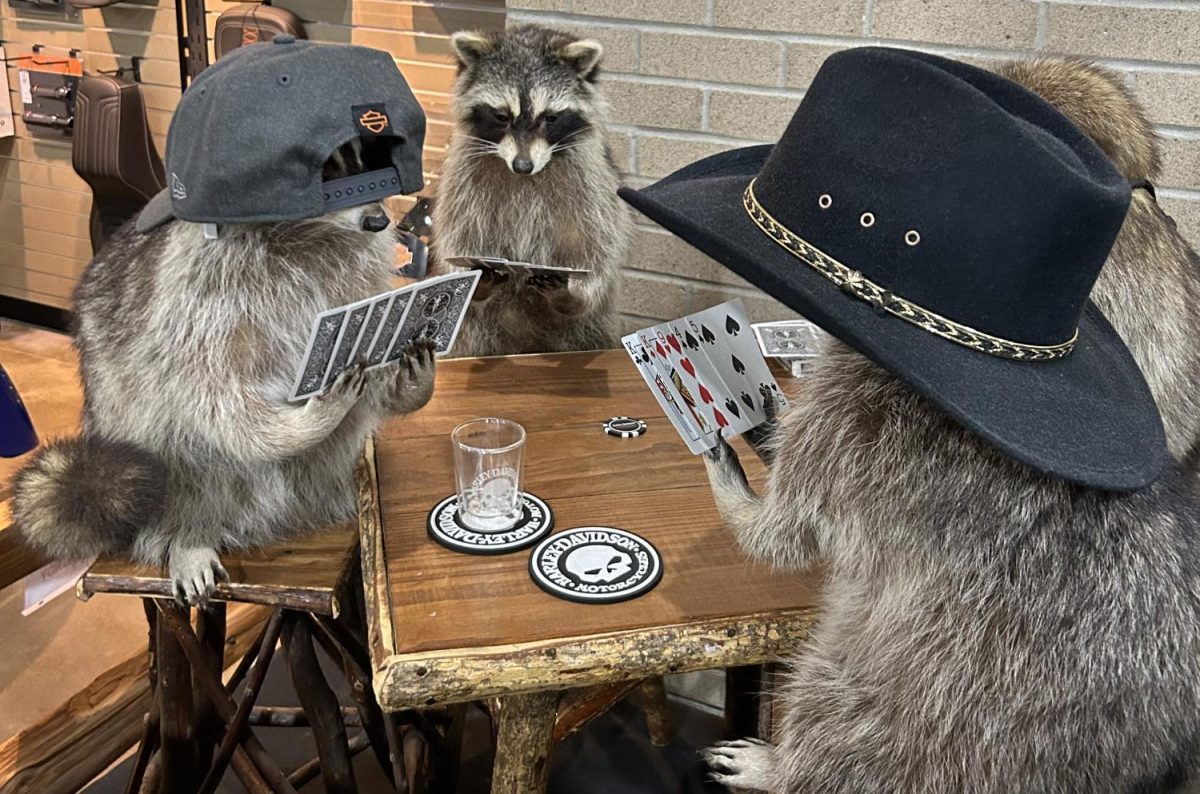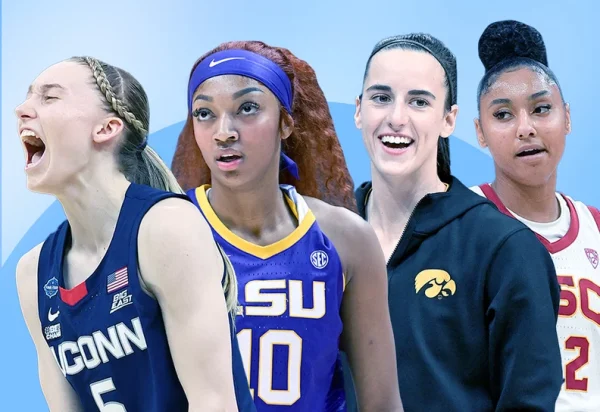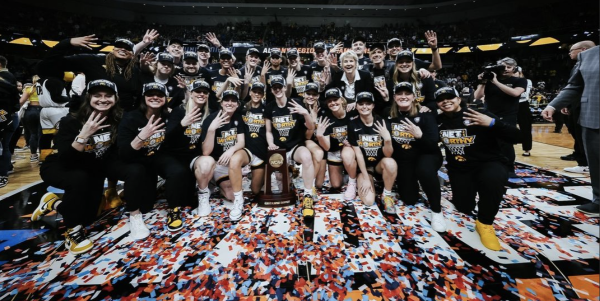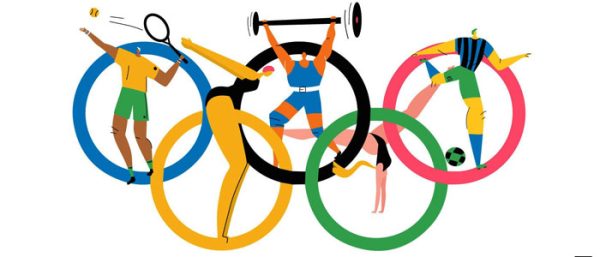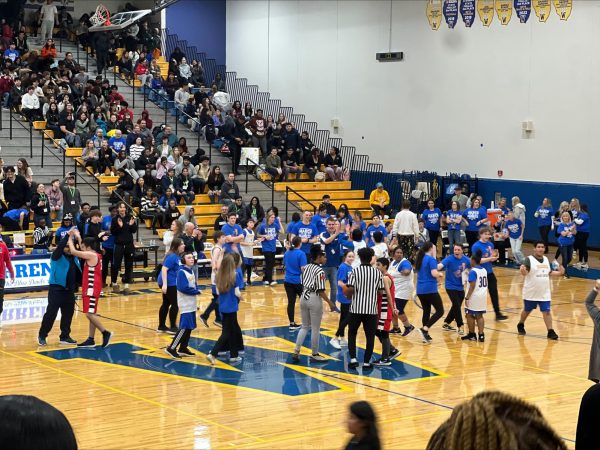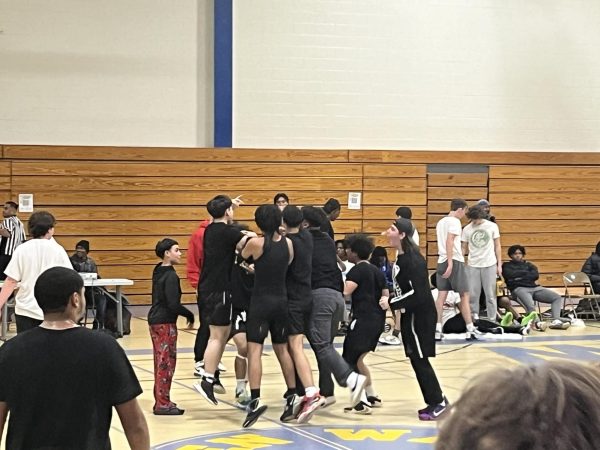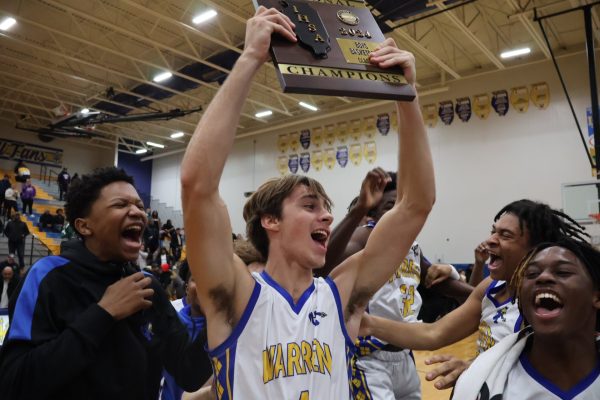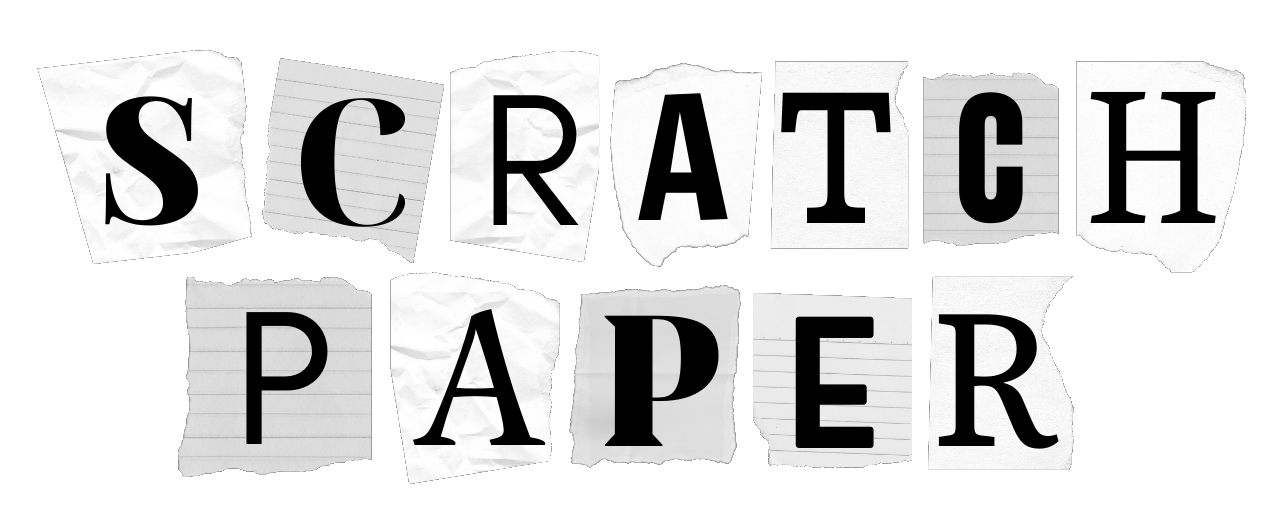Should a Football Game be Decided by a Coin Toss?
SANTA CLARA, CA – NOVEMBER 17: Captains of the San Francisco 49ers and the Arizona Cardinals meet at midfield for the coin toss prior to the game at Levi’s Stadium on November 17, 2019 in Santa Clara, California. The 49ers defeated the Cardinals 36-26. (Photo by Michael Zagaris/San Francisco 49ers/Getty Images)
January 30, 2022
The Buffalo Bills/Kansas City Chiefs AFC Divisional game on January 23rd was a wild one. The fourth quarter ended with a score of 36-36 after 28 total points were scored in the final quarter. This meant the game would be decided in overtime. The Chiefs prevailed 42-36 in a win that opened up people’s eyes to whether the NFL’s overtime rules should be changed.
The NFL’s current rules have an overtime begin with a coin toss. The away team chooses head or tails, and if they win the coin toss, they get to chose whether they would like to receive the ball to start overtime, or kick the ball to the other team to start the overtime period. If the home team wins, they get the same options. The problem with this is that the winner of the coin toss has a huge advantage towards winning the game. If the team who receives the ball first scores a touchdown, the game is over and they win. If they score a field goal, the other team gets a chance to either tie the game with another field goal which would lengthen the game, or score a touchdown to win a game. These rules matter even more during the playoffs, as it is a win or go home situation.
Some people believe that these rules are fair and should not be changed. The main argument towards this is the saying that “defense wins championships.” Which has been proven true over the last few years. From 2005-2015 half of the Super Bowl winners had a top 3 defense in the league. The rest of the teams all didn’t have a bottom ten defense except for the Super Bowl 41 winning Indianapolis Colts, who had the best offense in the league. So, the argument is that, if a team is Super Bowl winning quality, their defense should be able to hold up against the opposing offense for a drive. It can also be argued that it can be a disadvantage to get the ball first because if you fail to score any points, then the other team only needs a field goal to win.
But, the statistics show that getting the ball first is a huge advantage. The big statistic being shown is that 10/11 teams have won in overtime playoff games since the rule change, the one loss coming from one of the most controversial calls in the league’s history. In the regular season, 52% of teams who win the coin toss, end up winning the game. These statistics show that the winner of the coin toss wins the game in the end more often than not. But, there are alternatives to these overtime rules.
One largely accepted alternative is the rules college football uses. In college football, both teams get a chance on offense and defense. It starts with the ball placed at the 25 yard line and the team playing offense has to try and score without running out of downs or turning the ball over. Then, the other team gets to do the same thing. In the second overtime, the process is repeated, but each team must attempt a 2-point conversion after scoring a touchdown. If the game is still tied, the teams will take turns attempting 2-point conversions until a team wins.
Many other ideas, some crazy, have been circling to how the NFL could fix their overtime. Including, playing a full 15 minute overtime and playing to 8 points. These ideas would be less likely than either the college football rules, or a brand new set of rules the NFL may create.
The NFL clearly has an overtime issue, and fans will continue to hope for and speculate a rule change, until hopefully, one day, there is one.



